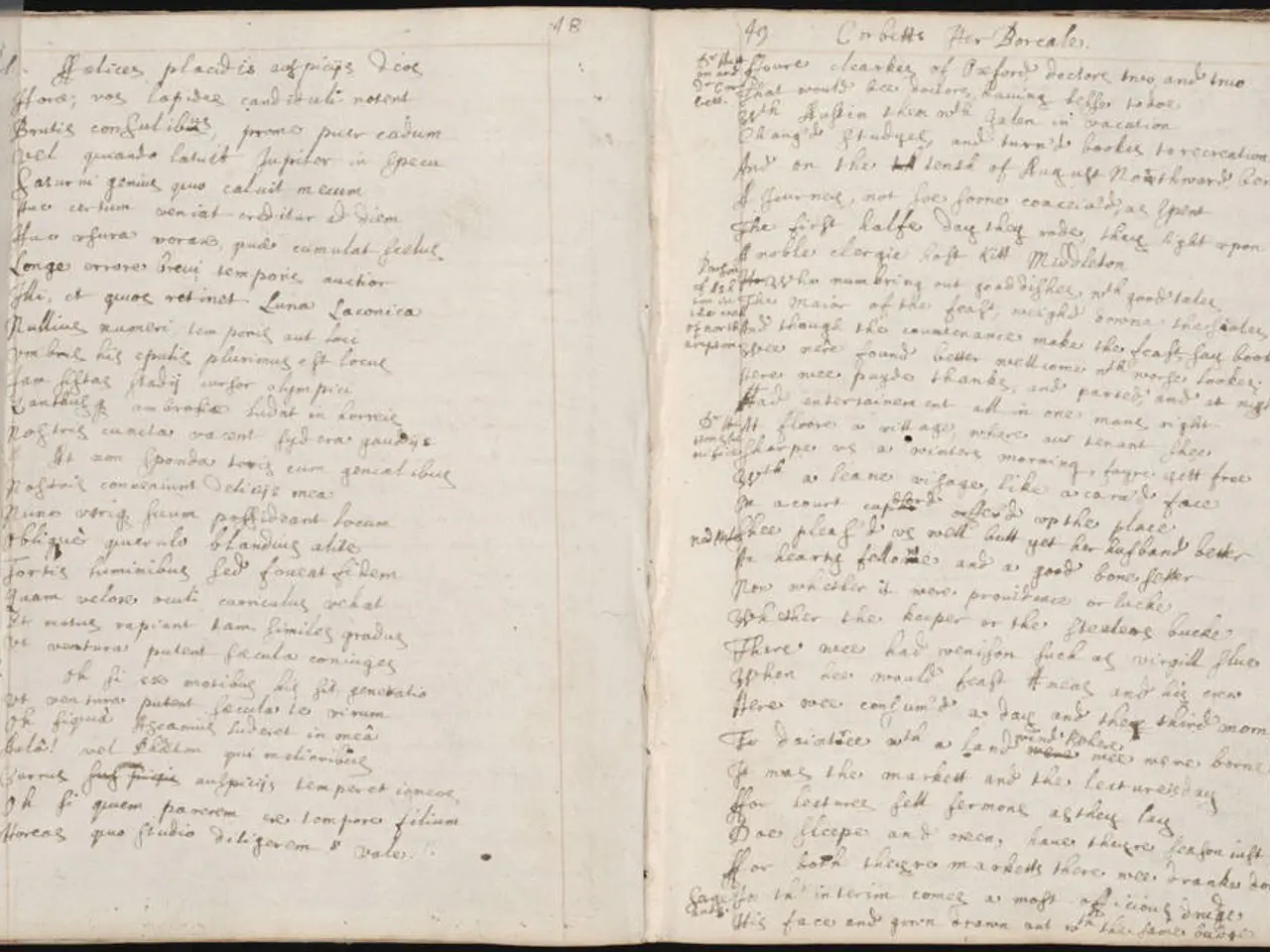Timeless Narratives of Science Fiction: Explore Enduring Stories That Fascinate
In the realm of literature, few genres hold a candle to classic science fiction. These timeless tales, penned by iconic authors such as Isaac Asimov, Arthur C. Clarke, and Philip K. Dick, continue to captivate and inspire, delving into what it means to be human, questioning morality and ethics, serving as cautionary tales, igniting the imagination, and reflecting on society, technology, and human nature.
Isaac Asimov's "Nightfall" paints a vivid picture of a world that experiences darkness only once every 2,049 years, exploring the fear of the unknown and the reactions of civilizations to the darkness. This narrative, like many others in the genre, touches on enduring themes such as the evolution of humanity, the tension between utopia and dystopia, the nature of consciousness, and ethical questions about free will and identity.
"The Last Question" by Asimov traverses across time as humanity grapples with the question of entropy, delving into themes of existence, technology, and the future of the universe. Meanwhile, Kurt Vonnegut's "Harrison Bergeron" showcases a dystopian future where everyone is forced to be equal through physical and mental handicaps, critiquing the idea of enforced equality and challenging readers to think about individuality.
Classic science fiction offers valuable perspectives on our current challenges, inspiring innovative solutions, and encouraging readers to engage in discussions about their relevance. For instance, George Orwell's "1984" depicts a totalitarian society under constant watch, exploring themes of censorship and the importance of intellectual freedom. Philip K. Dick's "The Man in the High Castle" is an alternate history story that imagines a world where the Axis powers won World War II.
Other notable works include Frank Herbert's "Dune", set on the desert planet of Arrakis, exploring themes of politics, religion, and ecology. Ray Bradbury's "The Veldt" is a story about a futuristic family that relies too much on technology, presenting a stark warning about the dangers of over-dependence on gadgets and the consequences of neglecting human connections.
"Fahrenheit 451" by Ray Bradbury serves as a cautionary tale about censorship and the importance of intellectual freedom, while "The Martian Chronicles" explores the colonization of Mars and the conflicts between humans and Martians. Ursula K. Le Guin's "The Left Hand of Darkness" challenges conventional notions of gender and sexuality.
Classic science fiction continues to resonate with modern audiences, inspiring today's most popular movies and TV shows. Themes and ideas from the past resonate with modern viewers, creating a unique bridge between generations. Reading classic science fiction provides insights into human nature and the potential consequences of our choices, challenging readers to think critically about the world around them.
In "The Time Machine" by H.G. Wells, the concept of time travel is introduced and critiques social class and evolution. Ray Bradbury's "There Will Come Soft Rains" envisions a house that continues to function after humanity has disappeared due to nuclear war, highlighting the stark contrast between the automated world and the void left behind by people. E.M. Forster's "The Machine Stops" imagines a world where humanity lives underground, relying entirely on a machine for all needs, and reflects on the themes of technology and self-reliance.
The works of these iconic authors have significantly shaped the genre as a whole, opening doors for new sub-genres and leading to innovative storytelling in both film and television. The lessons found in classic science fiction are more important than ever in today's rapidly changing technological landscape, reminding us of the power of imagination and the necessity of questioning the status quo. The enduring relevance of classic science fiction lies in its ability to provoke thought, challenge assumptions, and inspire new ways of thinking about our world and our place within it.
- The narrative of "Nightfall" by Isaac Asimov, a classic science fiction story, delves into themes of society, technology, and human nature.
- "The Last Question" by Asimov also falls under the genre of classic science fiction, exploring the intersection of existence, technology, and the future of the universe.
- In the realm of cinema, contemporary movies and TV shows often draw inspiration from the themes and ideas found in classic science fiction.
- Ursula K. Le Guin's "The Left Hand of Darkness" is a classic science fiction work that challenges conventional notions of gender and sexuality, much like the genre as a whole continues to challenge and question the status quo.




